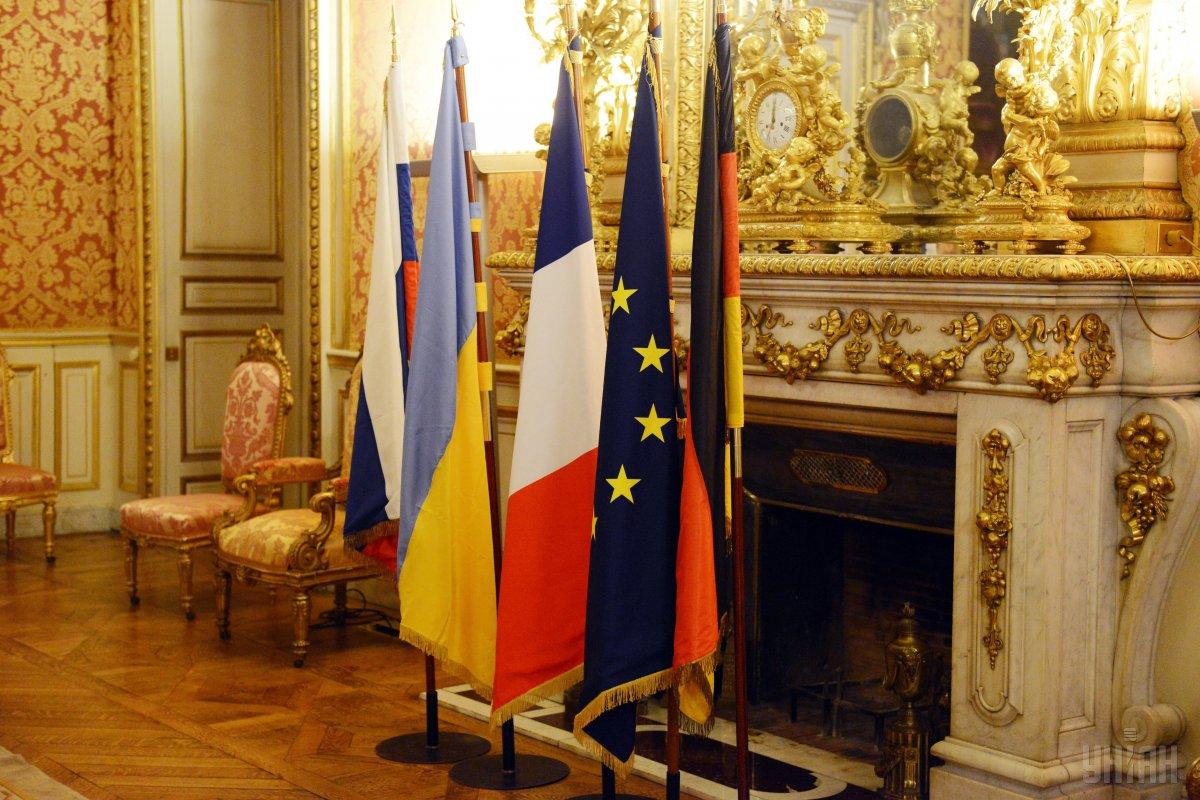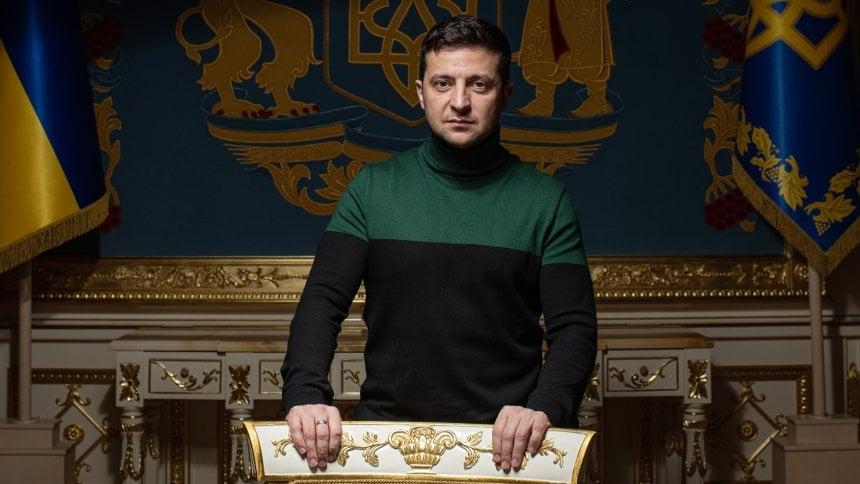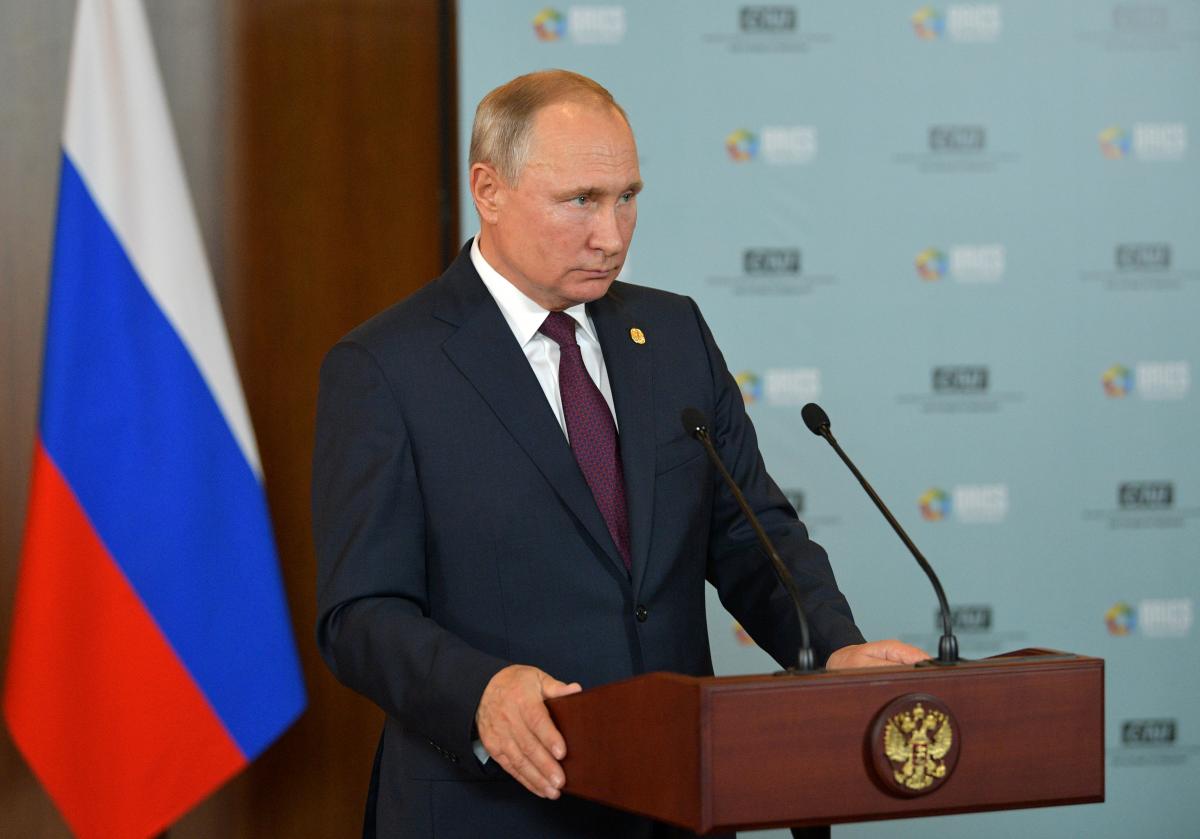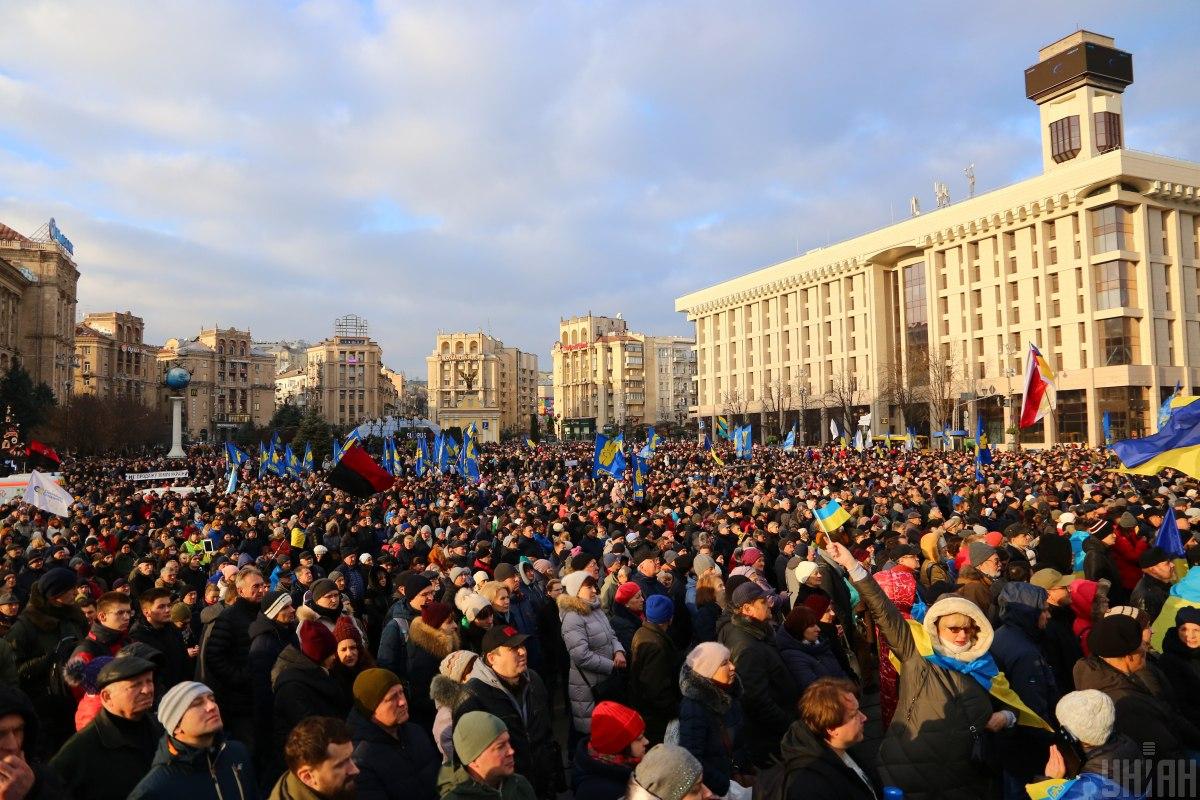First Normandy Four summit in three years: what we know so far
For the first time in three years, the leaders of Ukraine, Germany, France, and Russia will sit down at a negotiating table to move from a standstill the implementation of the Minsk agreements.

On December 9, the Normandy Four summit will be held in Paris to resolve the situation in Donbas, for the first time in three years.
In addition, the first bilateral meeting is expected to be held between President of Ukraine Volodymyr Zelensky and Russian President Vladimir Putin, who have only communicated over the phone so far. UNIAN has composed a brief summary about the Normandy Four format of talks, which President Zelensky will take part in for the first time.
Ukraine's position

President of Ukraine Volodymyr Zelensky said that Ukraine would have a strong position in the negotiations. "We want to end the war and return our people – this is the most important thing – as well as our territories," the president said.
According to Zelensky, he took the return of prisoners of war and political prisoners as a signal that "Russia is ready for conversation."
"We have a very strong position ... What have we done on our part? We did the disengagement, [met] all requirements, we agreed on the text of the 'Steinmeier formula', it will be implemented in the law 'on special status' [of Donbas] only after all the troops are withdrawn, there will be disarmament of illegal armed groups in the temporarily occupied territories. That is, when there is security, then the elections will begin and then the 'Steinmeier formula' will be implemented, so we have a very strong position," he stressed.
Ukrainian Foreign Minister Vadym Prystaiko said that peace, security and development in a single, democratic country is Zelensky's sole goal at the talks. "During the negotiations, we must first of all remember the interests of all Ukrainians, divided along the line of contact with Russian aggression and propaganda. Peace, security and development in a single, democratic country are the only goal of the president and the entire negotiating team," Prystaiko emphasized.
On December 7, Zelensky convened a closed-door meeting of the National Security and Defense Council. NSDC Secretary Oleksiy Danilov said that the authorities were ready for any developments in the context of negotiations. "That's if we agree; if we agree in part; or if we don't agree," he said.
"All government bodies, the Armed forces, and special services are ready for any scenario. Events will develop depending on how negotiations are held on December 9 and what conditions are achieved," the Secretary of the National Security and Defense Council added.
He expressed hope that negotiations, in which Ukraine will have a "powerful team" of experts, will be successful for Ukraine. Danilov assured that "the president of Ukraine will not allow any "surrender of national interests."
According to the head of the president's press service, Yulia Mendel, Zelensky at the talks in Paris will primarily raise the issue of returning Ukrainian prisoners, the issue of ceasefire and withdrawal of gang formations from the territory of Donbas.
"The first three steps that President Zelensky will take at a meeting in Paris: terms and conditions of the return of captured Ukrainians, a real, not a fake, ceasefire, and, of course, the withdrawal of foreign troops and gang formations from the territory of Donbas," she wrote.
Mendel noted that the first two questions are directly related to human life, therefore they are the most important ones. "The latter is a condition for holding elections in Donbas. Within the framework of elections throughout Ukraine, they can be conducted only when there are no foreign troops and illegal armed groups. This is what the Ukrainian law and simple logic say: Ukrainian parties cannot enter Donbas, international observers cannot be there, people cannot vote openly and unbiased while at gunpoint. First, our border, then elections, because these are our territories, and local elections will be held throughout Ukraine," the head of the press service emphasized.
Russian position

The Kremlin said that Russian President Vladimir Putin was going to Paris to meet with the heads of state of the "Normandy format" to "help resolve" what he brands an "internal Ukrainian conflict."
"As for the intentions, the intentions are serious. The only expectation is to contribute to the settlement of the internal Ukrainian conflict in the south-east of this country, to provide once again a common understanding of the lack of effectiveness in the implementation of the Minsk agreements, and to prevent any erosion of these Minsk agreements," said Putin's spokesman Dmitry Peskov.
When asked how the Kremlin reacted to the idea of Ukrainian President Vladimir Zelensky to create a "municipal guard" in eastern Ukraine, Peskov replied: "We learned about this from a media report, so I don't think it’s possible to comment now. There'll be Monday, there'll be a meeting of the four, there will be a substantive and professional discussion, and following that, it will possible to say something."
Zelensky-Putin meeting
Answering the question on whether he had planned a bilateral meeting with Putin at the Normandy Four summit, Zelensky said: "Yes, all presidents will have bilateral meetings." To the clarifying question, is he anxious about the upcoming meeting, Zelensky replied: "No, I want a result. That's the only thing that makes me anxious. We meet, see what's up, and say we're planning this and that. I really don't like the ineffectiveness of negotiations – this is the only thing I'm anxious about." "Why should I be afraid? I am the president of a free country, I am a normal decent person, I don't sell our country out to anyone, and I never will, in any case. The truth is on our side. When truth is on your side and you really have this will to end the war, you're growing stronger every day," the head of state added.
Russian President's spox Dmitry Peskov also confirmed that Putin planned to hold bilateral meetings in Paris with French President Emmanuel Macron, Ukrainian President Volodymyr Zelensky and German Chancellor Angela Merkel.
Merkel plans to hold separate bilateral meetings in Paris on December 9 with President of Ukraine Zelensky and President of Russian President Putin. From 15:00 local time, bilateral negotiations are scheduled. First, Merkel will meet Putin, and then Zelensky.
After these meetings, a joint working session will be held in the Normandy format. Following the summit, the Federal Chancellor hopes for a new impetus for the peace process and agreement on the next steps to be taken.
Today it became known that the meeting between Putin and Zelensky will take place after the summit.
Position of other countries
German Foreign Minister Heiko Maas demands from the Kremlin to be more prepared to take steps toward Ukraine. According to the German minister, after several years of stagnation, President Zelensky showed courage to take the first steps "with all domestic political risks and side effects."
Now Russia must also show that further agreements are possible, Maas believes. However, to this end, many more diplomatic efforts must be made and there must be patience, he added.
Together with France, Germany must also influence Russia, Maas believes. He said the talks will focus on finally stopping the "bloodshed on European soil".
The United States of America assured Ukraine of its unwavering support on the eve of the summit. The U.S. Embassy recalled that, starting in 2014, the United States provided Ukraine with $3 billion to support security and other areas.
Philip Barton, Director General for Consular and Security at the UK Foreign and Commonwealth Office, called on Russia to stop backing its proxy forces. Amid "little hope" seen this year, he said the new round of talks could mark the beginning of progress towards peace in eastern Ukraine and bring much-needed respite to the people of Donbas.
At the same time, the diplomat said that the United Kingdom welcomes the clear commitment of Ukrainian President Zelensky to find a diplomatic solution to the conflict. He also expressed hope that the daily intimidation of OSCE SMM observers and the hampering of their work will cease.
Ukraine's expectations
The future of Ukraine depends on the results of the Normandy Four negotiations, said Chairman of the Verkhovna Rada of Ukraine Dmytro Razumkov.
"On this day there should be no politics and struggle – only a statist position of Ukraine," he said. In addition, Razumkov emphasized that "the red lines will be respected, and our territories will be returned."

On December 8, at Kyiv's Maidan Square the national rally "Red Lines" was held, initiated by European Solidarity, Voice, and Motherland parties.
Protesters demands are the following: no compromise regarding a unitary state toward federalization, regarding a European and Euro-Atlantic course, regarding de-occupation and return of Crimea. They also demanded that no political action be taken, in particular, elections in the temporarily occupied territories of Donbas, before the withdrawal of Russian troops, the disarmament of illegal armed groups, the regaining of control over the state border, and no U-turns in international litigation with Russia.
Normandy format background
Presidents of Ukraine, France and Russia, as well as the Chancellor of Germany, have already met five times. The latest meeting of the Norman Four took place on October 19, 2016 in Berlin. Petro Poroshenko, Vladimir Putin, Angela Merkel, and Francois Hollande took part in the negotiations. It lasted almost five hours. It was during these negotiations that the first mention of the infamous "Steinmeier formula" emerged.
*** The Norman format includes Ukraine, Germany, France, Russia. The talks aim at resolving the armed conflict in eastern Ukraine. The name of the format comes from the meeting of the heads of said four states, which was first held on June 6, 2014 in the city of Benouville, in Normandy (France), as part of the celebration of the 70th anniversary of Operation Overlord and the opening of the so-called second front of World War II.